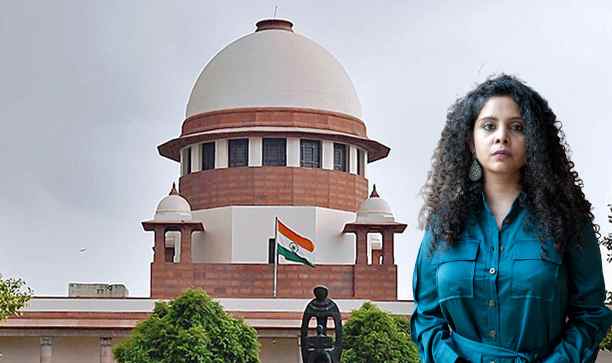
The Supreme Court on Tuesday reserved its judgement on the petition of journalist Rana Ayyub, who was summoned by a special PMLA court in Ghaziabad in a money laundering case filed by the Enforcement Directorate (ED).
A bench led by Justice V. Ramasubramanian heard the case and reserved its decision on Ayyub’s appeal against the Ghaziabad court’s order issuing summons in connection with a Prevention of Money Laundering Act (PMLA) case.
Earlier, the Supreme Court had asked the Ghaziabad court to adjourn the case and scheduled Ayyub’s appeal against the summons issued by the Ghaziabad court for hearing on January 31.
Ghaziabad court on November 29 had issued summon to Ayyub and asked her to appear before it on January 27.
Appearing for Ayyub, advocate Vrinda Grover told the bench that she is raising a jurisdictional issue that the Ghaziabad court has no jurisdiction to hear the matter.
Grover stated that the prosecution complaint should have been filed in Mumbai, where the alleged offence occurred, and that the alleged proceeds of the crime are in a bank account in Navi Mumbai, with no part of the offence taking place in Uttar Pradesh.
Representing the Enforcement Directorate, Solicitor General Tushar Mehta argued that money laundering is not a standalone offence but is linked with the scheduled offence.
Mehta stated that several people from Uttar Pradesh have donated to Ayyub’s campaign, so Ghaziabad and Uttar Pradesh have become involved in the cause. According to the Solicitor General, the money received was used for “travel and pleasure.”
The Enforcement Directorate (ED) filed a complaint against Ayyub in Ghaziabad court in October 2022 for alleged violations in publicly raising funds.
The ED had registered the case against Ayyub on the basis of a complaint filed in September 2021 in Ghaziabad under the provisions of the Indian Penal Code (IPC), the Information Technology Amendment Act (IT Act), and the Black Money Act.
It was alleged in the FIR that she illegally acquired funds from the general public in the name of charity by launching fundraiser campaigns.
These included:
1. Raising funds for slum-dwellers & farmers;
2. Funds for relief work for Assam, Bihar and Maharashtra;
3. Funds to help those impacted by COVID-19 in India.




